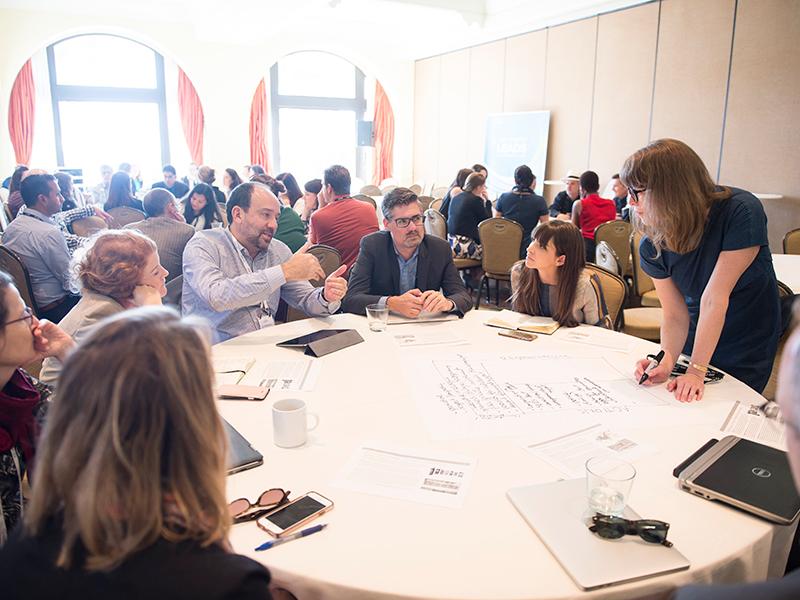Introducing CoLab
Join Us to Take Business-Led Collaboration to the Next Level

By Peder Michael Pruzan-Jorgensen, Senior Vice President, BSR; Nicolas Ronderos, Manager, Collaborations, BSR
While the world is changing for the better, in alignment with the ambitions of the Sustainable Development Goals (SDGs), it’s not changing anywhere near fast enough.
The IPCC recently released a report highlighting how the world has an increasingly small window to take the drastic action required to limit the devastating impacts of climate change. Analysis by the Ellen MacArthur Foundation in 2017 suggested that there could be more plastic than fish in the ocean by 2050. A report from Sisters for Change published in 2016 found that one in seven women garment workers has been raped or forced to commit a sexual act.
We need to do better. And we can. The world needs new partnerships of unprecedented scale and ambition between the private sector, governments, and civil society to create a future in which both societies and companies thrive.
Today we are pleased to launch CoLab: BSR's incubator and accelerator of private-sector collaboration, mobilizing the collective power of business to solve some of the world’s biggest sustainability challenges. Driven by the collective ingenuity of business and stakeholders, CoLab ideates, designs, and scales collaborations that have transformational impacts.
With their reach, resources, capacity for innovation, and voice, companies can be a major driver of positive change. A unified and collective effort from business can create a step change in progress toward the SDGs.
Increased collaboration is good for societies, who benefit from the collective reach, resources, and voice of businesses working in common cause. And it is good for businesses, who can build more resilient supply chains, reduce costs and improve productivity, overcome systemic barriers, and enhance brand value.
BSR has been designing, implementing, and scaling business-led collaborations to achieve win-win solutions for over 25 years. For instance, the Maritime Anti-Corruption Network (MACN) contributed to regulatory reform in Argentinian ports, which reduces corruption risks and creates a more efficient trading environment; shipping companies in Clean Cargo have cut their carbon dioxide emissions by 35 percent per TEU-km since 2009; and HERproject has empowered more than 800,000 women in 14 countries with knowledge and skills related to health, financial inclusion, and gender equality.
CoLab will work by crowdsourcing a wide range of proposals for game-changing collaborations like these and developing the most promising. We are therefore calling on you—as businesses, NGOs, governments, foundations, or individuals—to take this opportunity to participate in a major, global incubation exercise. Through CoLab, you can engage with BSR’s global network of peer companies and thought leaders to ideate, design, and scale game-changing initiatives with transformational impacts. CoLab can help you take a vision for collaboration and turn it into reality.
CoLab will operate according to four principles:
- Value to Business and Society: Prioritize issues that deliver business value as well as significant societal impact.
- Solutions that Motivate: Advance solutions that engage participants’ core business strategies and tap into their full range of assets—capabilities, ingenuity, knowledge, reputation, networks, and financial resources.
- Stakeholder Inclusion: Ensure collaborative solutions take into account stakeholder and rights-holder perspectives, as well as optimize impacts and mitigate risks for beneficiaries.
- Action Orientation: Select efforts that are actionable to deliver change and impact. Move fast, be prepared to adapt.
By following these four principles, we aim to create collaborations that can grow quickly by mobilizing a wide range of actors around critical topics.
We are inviting all of BSR’s stakeholders and any other interested parties to submit ideas now through the CoLab page. We look forward to collaborating with you through this and other ways.
This originally appeared on the BSR blog.

